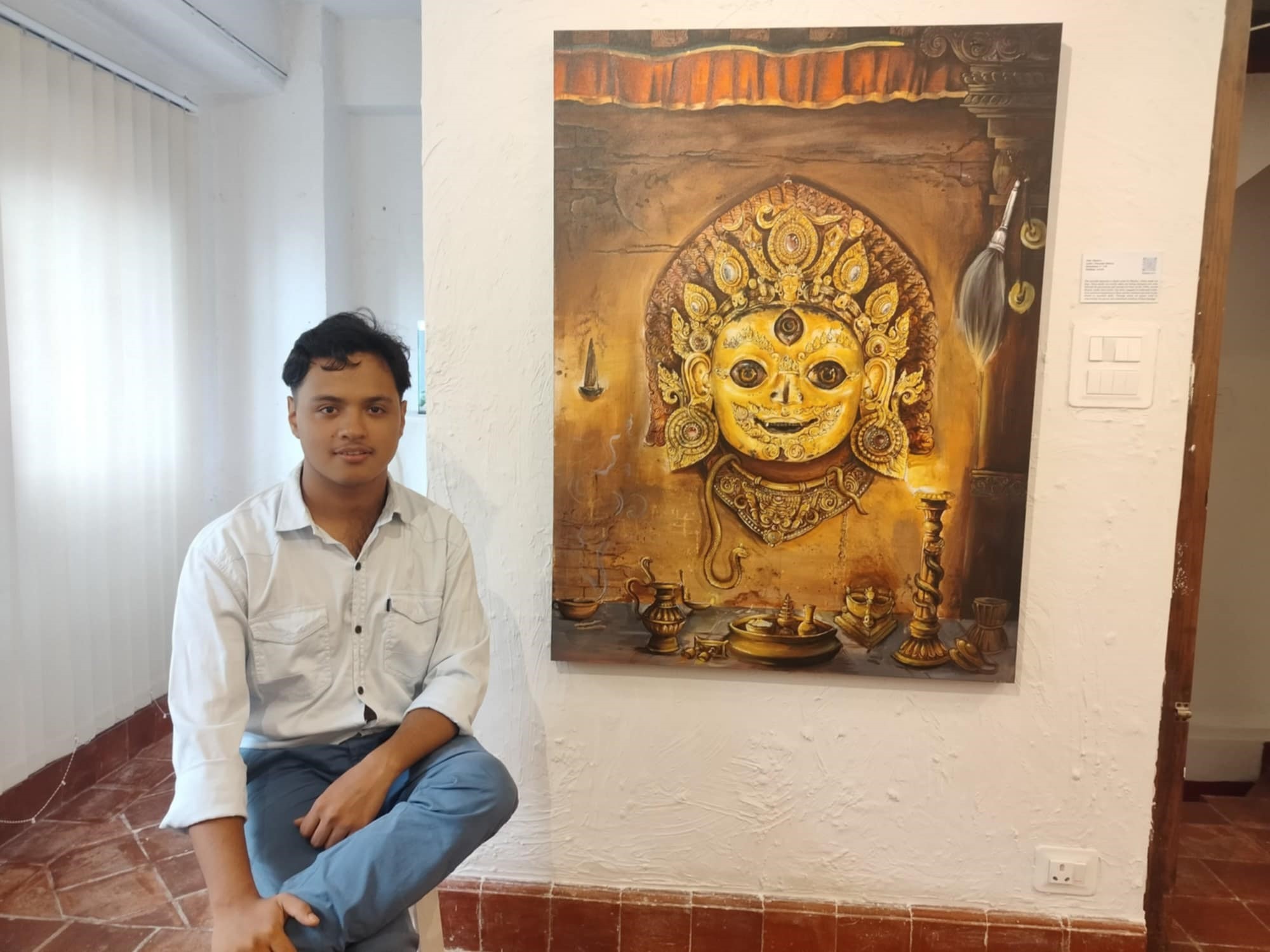
Incidents where individuals turn against their own families, often leading to violent and tragic outcomes, can leave society shocked and searching for answers.
While some may appear impulsive, deeper analysis often reveals a calculated decision. Psychiatrists suggest that individuals committing such acts are not just attacking their loved ones but attempting to “kill their problems.”
This raises questions about the mental health crisis, familial pressures, and societal influences that lead to such heinous crimes.
Case studies highlighting the issue
Case 1: Bhaktapur tragedy

In Bhaktapur’s Balkot area, a horrifying case unfolded recently. Kul Prasad Acharya and his two sons, Milan and Praveen, had dinner together before going to bed. By morning, Kul Prasad and Praveen were dead, and Milan was missing. A few hours later, Milan surrendered at the Maharajgunj Police Circle, confessing to killing his father and brother and then attempting to take his own life.
The motive? Milan, originally from Khotang, faced immense pressure to secure a government job by passing the Public Service Commission exams. His repeated failures filled him with guilt for not meeting his family’s expectations and shame at being unable to face society. This intense frustration led him to see his family as obstacles to his peace of mind, culminating in his decision to kill them.
Case 2: Petrol attack in Kathmandu
Another shocking incident occurred in Jestha 2080 BS in Kathmandu. Chanchal Bahadur Singh, a 55-year-old man, doused his wife and three daughters with petrol before setting them on fire. Supriya and Samridhi, his elder daughters, died in the attack, while his wife and youngest daughter sustained severe injuries. Singh, reportedly intoxicated, initially claimed his rage stemmed from not being served dinner. However, the brutality of the attack suggests deeper psychological and emotional issues.
Case 3: Massacre in Sankhuwasabha

In Bhadra 2078 BS, the Sankhuwasabha district witnessed a gruesome family massacre. Tej Bahadur Karki, his wife Kamala, daughter-in-law Ranjana, two grandchildren, and a 92-year-old grandmother were brutally murdered. The perpetrator was identified as Tej Bahadur’s nephew, Lok Bahadur. Lok, who had returned from foreign employment and was struggling with depression and financial instability, harboured long-standing grievances against Tej Bahadur. He accused his uncle of mocking and disrespecting him, which fueled his rage and led to the murders.
The underlying issues
These cases, though distinct, share common threads: the perpetrators’ mental health struggles, familial tensions, societal pressures, and financial difficulties. Experts emphasise that such crimes rarely occur in isolation but are the culmination of unresolved psychological and social issues.
Familial expectations and pressure
In Milan Acharya’s case, the intense pressure to secure a government job created an environment of guilt and shame. In Nepal, societal expectations often place undue stress on individuals to achieve specific milestones, such as career success or financial stability. When individuals fail to meet these expectations, they may experience feelings of inadequacy, hopelessness, and resentment.
Substance abuse and impulsivity
The Kathmandu petrol attack underscores the role of substance abuse in exacerbating violent tendencies. Chanchal Bahadur Singh’s intoxicated state likely impaired his judgment and amplified his anger, leading to a catastrophic outcome. Substance abuse often acts as a catalyst in domestic violence cases, lowering inhibitions and increasing aggression.
Grievances and resentment
In the Sankhuwasabha massacre, Lok Bahadur’s long-standing grievances against his uncle culminated in an act of extreme violence. Such cases highlight how unresolved conflicts and perceived injustices within families can escalate into fatal confrontations. Mental health professionals note that harbouring resentment without seeking resolution or support often leads to destructive outcomes.
The role of mental health
Mental health plays a critical role in understanding these tragedies. According to clinical psychologist Dr Bijay Gyawali, many family murders are rooted in the perpetrators’ attempts to resolve their internal struggles by eliminating those they perceive as contributors to their problems.
However, the stigma surrounding mental health in Nepal often prevents individuals from seeking help, exacerbating their struggles.
Dr Rishav Koirala, a clinical psychiatrist, notes that many individuals who commit such crimes suffer from depression and feelings of hopelessness. In Lok Bahadur’s case, his financial struggles and perceived lack of respect likely deepened his depression, driving him to commit an unthinkable act.
While some acts may appear impulsive, they are often premeditated. Milan Acharya’s confession revealed that he had planned the murders in advance. This indicates a calculated decision fueled by his mental state, where he saw no other way to escape his problems.
Societal and cultural factors
Nepal’s societal norms and cultural practices also contribute to the mental health crisis. The pressure to conform to traditional roles and meet societal expectations can create immense stress, particularly for men, who are often expected to be the primary breadwinners. Failure to fulfill these roles can lead to feelings of inadequacy and resentment.
The stigma surrounding mental health in Nepal prevents many individuals from seeking help. Psychiatrist Dr Sagun Ballav Pant emphasises that mental health discussions are often avoided, leading to untreated conditions. This lack of awareness and support contributes to the escalation of psychological issues, sometimes culminating in violence.
Nepal’s economic landscape also plays a significant role in these tragedies. Financial instability, unemployment, and debt are common stressors that can strain familial relationships and impact mental health. Lok Bahadur’s struggles after returning from foreign employment highlight how economic challenges can lead to feelings of hopelessness and despair.
Preventing family violence: The way forward
Addressing the issue of family violence requires a multi-faceted approach that includes mental health awareness, societal changes, and stronger support systems.
1. Mental health awareness
Raising awareness about mental health is crucial to preventing such tragedies. Families and communities need to be educated about the importance of mental well-being and the warning signs of psychological distress. Open conversations about mental health can help reduce stigma and encourage individuals to seek help.
2. Early detection and intervention
Training families and community members to recognize the early signs of mental health struggles can prevent crises. Early intervention, such as counseling or therapy, can help individuals manage their emotions and develop healthier coping mechanisms.
3. Accessible mental health services
Nepal’s healthcare system must prioritise mental health by providing accessible and affordable services. Expanding mental health clinics, training professionals, and integrating mental health care into primary healthcare can make a significant difference.
4. Strengthening support systems
Families play a crucial role in supporting individuals with mental health challenges. Building strong familial bonds and fostering open communication can help individuals feel understood and valued, reducing the likelihood of violent outbursts.
5. Societal changes
Nepali society must move away from rigid expectations and emphasize emotional well-being over material or societal achievements. Encouraging a culture of empathy and understanding can alleviate some of the pressures that contribute to mental health struggles.
6. Addressing substance abuse
Substance abuse is a significant factor in many domestic violence cases. Implementing programs to address addiction and promote responsible behavior can reduce the risk of violence within families.
7. Conflict resolution mechanisms
Teaching conflict resolution skills can help families address grievances constructively. Mediation and counseling services can provide neutral platforms for resolving disputes and preventing escalation.
The tragic cases of family violence in Nepal underscore the urgent need to address the underlying issues of mental health, societal pressures, and economic challenges. By raising awareness, promoting mental health care, and fostering supportive family and community environments, we can work towards preventing such devastating incidents.
These efforts require collaboration between individuals, families, communities, and the government to build a society where mental well-being is prioritized, and violence is not an outlet for unresolved struggles.


























